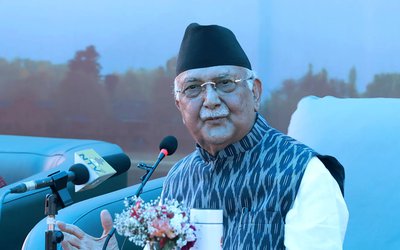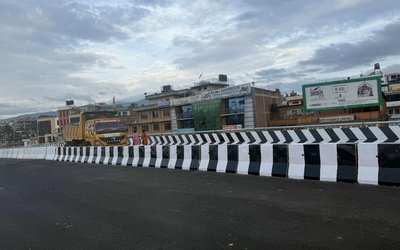More on News




I had written my very first piece for this magazine, entitled “The Constituent Assembly: Three Blunders from its Inception” in May 2011 [VOL. 04, NO. 22, May 13, 2011] as a part of my regular column. Looking back in time, the political impasse was only to deteriorate and the drafting of the constitution would cease to be the central theme of the nation. As I have mentioned before, for a nation with the experience of having written six constitutions in the past sixty years, seeking and managing to implement the seventh should not been riddled with so many hurdles. Yet, the nation has been living a constitutional/ political crisis which has only heightened by the simultaneous deaths of the Constituent Assembly and the Legislature Parliament. To Nepal, emerging from a decade long internal armed conflict, the constitutional crisis has been further deepened by the pending truth and reconciliation and nation re-building tasks.
Not denying the existence of a host of possible reasons for the crisis, one issue that runs at the very heart of the confusion is that of the moral decay of the authority to govern. When the moral authority to govern is lost, text sanitized by legal authority, and institutions cemented by hereditary legacy crumble to the ground.
This is one lesson Nepal must definitely learn from the past six constitutions drafting exercises and the absolute abolition of monarchy. Both are the products of extreme degradations of the moral authority to govern a nation. The account of Nepalese history would go on to show an extremely high success rate of revolutions and movements, and loss of moral authority to govern the population has always proved pivotal in this regard.
In many ways than one, the current political impasse is no different from the phenomenon of the decay of moral authority to govern, which has plagued Nepal periodically. I shall look at two very important aspects of current Nepal and see how they have been dealt with. The stench of moral decay will be hard to miss.
Mockery of the Will of the People
Is it beyond doubt that, the will of the people must take center stage when it comes to governing a nation in a stable manner, thereby preventing regular fall of regimes. The Constituent Assembly comprising of a meaningful representation of the nation along with the meeting point of polarized views (especially between the representatives of the political parties and the Maoists) came into being through the election of the Assembly held on April 10, 2008. The national wide election was to give the mandate of governance to the Constituent Assembly by vesting upon it the dual responsibilities of writing the new constitution, as well as, performing the tasks of the sovereign legislature of the nation. The will of the people was clear; the Assembly was elected with these two primary tasks.
Upon having failed multiple times to achieve the primary objective of drafting the new constitution, the Assembly finally dissolved itself on the 27th of May, 2012. The cost of such a huge drafting process, doled out from national coffers as well as the donor community and organizations was a futile process which has been talked about very much. What is interesting in all of this is the simple fact that instead of going for a fresh election after having failed the mandate of the people repeatedly, there still exist those seeking to revoke the dead Assembly. The degradation of basic morality to govern is definitely taking its toll when constitutionally and morally abhorrent notions such as the revival of the dead Assembly is argued as the only hope for stabilizing a nation in transition. No matter how it is couched with arguments, the stench of moral decay to govern reeks out.
Even a glance at the pending “Bill and Amendments to Proposals Relating to Truth and Reconciliation Commission and Disappearance” would show how legally drafted documents have sought to envisage a blanket amnesty even for the most degrading forms of human rights violations. The said document, reads under Article 25 (1) “Notwithstanding anything contained in Section 24, the Commission may, if deemed reasonable, recommend for amnesty for persons involved in gross violations of human rights, by furnishing sufficient grounds and reasons thereof to the Government of Nepal”. Article, 25 (1) read with the preceding article, 24 which deals with the provision on departmental actions for cases of gross human rights violation, will indicate how any action under article 24 can be prevented by resorting to article 25 (1). The death of article 24, providing an automatic escape route through article 25 (1) will indeed be pulled out on many occasions, as justice for gross human rights violation will be silenced legally.
Finally, one can only wonder where the views and choices of the conflict affected families have been incorporated while designing such a transitional justice mechanism. The degradation of moral authority to govern is once again a question to be reckoned with, the stench to be dealt with.




